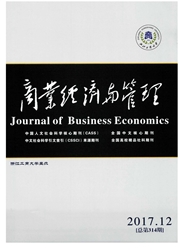

 中文摘要:
中文摘要:
文章从归因理论的视角出发,探索了购买与评论间的时间间隔与产品类型(物质性产品Vs体验性产品)如何相互作用以影响评论的有用性感知。通过将产品分为物质性产品和体验性产品,文章运用实验检验了时间间隔对不同产品类型的评论影响作用产生的不同作用。结果表明,对于体验型产品来说,时间间隔近(Vs远)可以提高评论的有用性感知;而对于物质型产品来说,时间间隔近(Vs远)可以降低评论的有用性感知。除此之外,实验结果也证实归因倾向中介于时间间隔与评论有用性感知。但是时间间隔对评论有用性的影响还会受到评论效价的调节,时间间隔只会改变正面评论的有用性感知,但是并不能显著影响负面评论。研究结论有助于深入理解阅读者对在线评论的有用性判断的反应,并为在线零售商提供了一个更好利用和维护在线产品评论提高新的视角。
 英文摘要:
英文摘要:
This paper adopts the casual attribution theory and examines how the temporal distance and the product type influence the perceived usefulness of online reviews. In this study, products are classified into material products and experience products, and we experimentally test whether the varying time intervals can moderate the effect of product type on perceived usefulness of online re- views. The results show that for experience products the shorter (vs longer) time interval can improve the perceived usefulness of on- line reviews; but for material products the shorter (vs longer) time interval reduces the perceived usefulness of online reviews. The lab studies also show that the reader's attributions about the motivations of the reviewer mediate the effect of this interaction effect on the perceived usefulness of reviews. Furthermore, this effect occurs only for positive reviews, but not for negative reviews, The findings enhance our knowledge of online product reviews, and provide a new prospective to validate online reviews for online retailing.
 同期刊论文项目
同期刊论文项目
 同项目期刊论文
同项目期刊论文
 期刊信息
期刊信息
